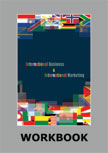The Fall of D'Long




|
|
ICMR HOME | Case Studies Collection
Case Details:
Case Code : BENV009
Case Length : 13 Pages
Period : 1996-2007
Pub Date : 2007
Teaching Note :Not Available
Organization : D' Long Group
Industry : Diversified
Countries : China
To download The Fall of D'Long case study
(Case Code: BENV009) click on the button below, and select the case from the list of available cases:

Price:
For delivery in electronic format: Rs. 300;
For delivery through courier (within India): Rs. 300 + Rs. 25 for Shipping & Handling Charges
»
Business Environment Case Studies
» Case Studies Collection
» ICMR Home
»
Business Environment Short Case Studies
» View Detailed Pricing Info
» How To Order This Case
» Business Case Studies
» Case Studies by Area
» Case Studies by Industry
» Case Studies by Company
Please note:
This case study was compiled from published sources, and is intended to be used as a basis for class discussion. It is not intended to illustrate either effective or ineffective handling of a management situation. Nor is it a primary information source.
|
|
<< Previous
"D'Long is like many private Chinese companies: a history
of monumental entrepreneurial zeal combined with a penchant for shady ways of
gathering funds to finance their ambitions. And perhaps most troubling of all,
many of these companies display a real antipathy to telling anyone--even
partners--what they are up to."1
- Far Eastern Economic Review, 2004.
"D'Long is so big, involved in so many different
industries, and so deeply involved in the financial system. If D'Long died, it
would cause a chain effect. Banks would be hit. The stock market would be
damaged. It would harm the overall confidence in the markets. The government
cannot allow that to happen."2
- Yin Zhongli, Finance Expert at the Chinese Academy of
Social Sciences in Beijing, 2004.
Introduction
|
In April 2006, Tang Wanxin (Wanxin), President and one of the founders of the
bankrupt Chinese conglomerate, the D'Long Group (D'Long), was sentenced to eight
years in prison for his role in a fraud described by the local media as 'China's
biggest stock scandal'. D'Long, which had failed to repay liabilities amounting
to Yuan 16 billion3, was accused of
illegally raising more than Yuan 43.7 billion from the public between 2001 and
2004. It was also alleged that D'Long had bought shares worth Yuan 67.8 billion
from three of its listed companies, Torch Automobile Group Company Limited
(Torch Automobile), Shenyang Hejin Holding Investment Company Limited (Shenyang
Hejin), and Xinjiang Tunhe Investment Company (Tunhe) and raked in more than
Yuan 9.8 billion from the dealings.
|
|
Along with Wanxin, several employees of D'Long were sentenced to prison by The
Wuhan Intermediate People's Court.
D'Long was the largest publicly traded company in China and Wanxin and his
three brothers, popularly known as the Tang brothers, were among the richest
citizens in China. When D'Long was set up in 1986 at Xinjiang, it was just a
small service that developed and printed photographs.
|
|
It later
grew to include food products, construction, machinery, dairy, mining,
finance, etc. In order to finance the growing businesses, the Tang
brothers inflated the share prices of D'Long's listed companies and
obtained loans from banks by pledging these shares. In April 2004, there
were reports in the media that D'Long was facing financial problems and
that it had pledged equity in listed companies as collateral for bank
loans. The stock prices of the listed companies took a plunge and
panicky depositors began demanding repayment from the group's investment
companies. This led to the collapse of the group. |
The Fall of D'Long
- Next Page>>
|
|



